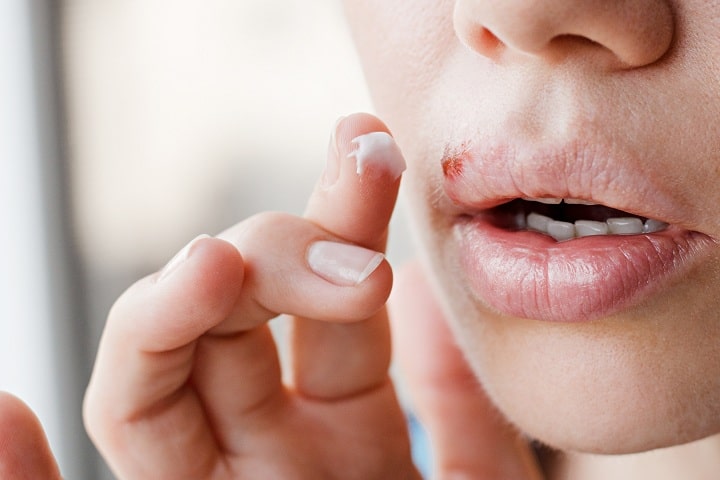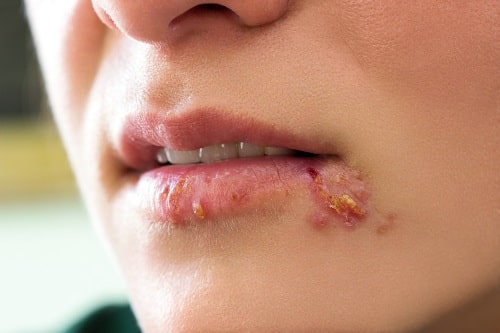Herpes is a contagious viral infection, which is due to the herpes simplex virus (HSV). There are two types of HSV: HSV-1 and HSV-2.
Also referred to as oral herpes, HSV-1 can cause blisters and cold sores around the mouth and face. HSV-2, on the other hand, may result in genital herpes outbreaks.
Even if herpes is a mild infection, it can lead to painful and itchy blisters that recur periodically, which can affect your daily activities. The infection may also result in fatal complications for pregnant women, newborns, and people with weak immune systems. To learn more about herpes, read below or check out this informative post.
Causes Of Herpes
When a person has herpes, it can quickly pass from one person to another through contact with the moist skin of the mouth and genitals like the anus. It may also spread through contact with some areas of the eyes and skin. However, a person can’t get herpes by touching a surface or an objective.
More often than not, the infection may occur in several ways, including:
- Having any other genital or oral contact with another person with herpes
- Sharing sex toys
- Having anal or vaginal sex without using a condom
Herpes is most contagious when the symptoms start to appear or when they start healing. Less commonly, a person may transmit the virus when the symptoms aren’t present. If a pregnant woman has herpes while giving birth, the baby can be infected by the virus.
Symptoms Of Herpes
Usually, oral herpes manifests as blisters or cold sores on the lip, on the genitals, or inside the mouth. The nervous system and eyes can be affected as well. Such blisters and sores may develop into painful ulcers. Some common symptoms of oral herpes include:
- Muscle aches
- Fever
- Swollen neck glands
- White coating on the tongue
- Swollen gums
Like STD symptoms, the symptoms of herpes may not appear immediately and could occur after you’ve been infected with herpes for days, weeks, or years.
In terms of HSV-2, which often leads to genital herpes, it can affect the scrotum, penis, or vagina as well as the rectal area and the buttocks. It may also infect the mouth when a person performs oral sex.
Other symptoms associated with genital herpes are as follows:
- Fever
- Swollen lymph nodes
- Pain during urination
- Oozing and painful sores
- Painful or itching sensation around your anal region or genitals
When compared to other viruses, herpes can’t be permanently removed from the body and may continue to reside in one’s nerves. With this in mind, there’s a possibility that the symptoms may surface again. It happens when the body is under mental or physical stress. Hormonal changes due to body changes, including menstruation and pregnancy may also cause such symptoms to flare up.
Treatment
As of the moment, there’s still no cure for herpes. However, you can take medications to make the outbreaks less painful and to prevent possible outbreaks in the future. Depending on your case, your doctor will give you the best treatment options.
For example, if you’re having an outbreak, doctors may prescribe a medication to help you heal the symptoms faster. Some of the medications for managing herpes are:
- Famciclovir – It’s a prescription drug for genital and oral herpes, which is often recommended for those who have strong immune systems. It’s not suitable for people with weak immune systems and works by reducing the length and severity of herpes outbreaks.
- Acyclovir – It’s another prescription drug that can be applied topically or taken orally that treats the symptoms of HSV-2. It can help reduce the pain of outbreaks and heal them faster. Ideal for people with weak immune systems, acyclovir may also help avoid the risk of the virus spreading to other body parts.
- Valacyclovir – It’s a prescription antiviral drug that comes in tablet form taken by mouth. It helps prevent flare-ups and treat the symptoms of genital and oral herpes. People who suffer from frequent outbreaks may take valacyclovir daily as suppressive therapy to avoid future infections and minimize the risk of possible transmission to sexual partners.
Aside from medications, you can also help ease the symptoms with the following home remedies:
- Put an ice pack on your cold sores or blisters
- Wear loose and softer clothes
- Keep your genital area dry because moisture makes your sores last longer
- Consider taking a warm bath regularly
Taking advantage of OTC medications like topical creams to experience pain relief from herpes outbreaks is also an excellent idea. Just don’t forget to consult your doctor first before you try any treatment for herpes. It’s because even if herpes isn’t deadly as most people think, you need the right treatment option to manage the outbreaks effectively.
Conclusion
While herpes isn’t curable yet, there are ways to manage its symptoms, such as cold sores on the mouth and blisters on the genitals. There are home remedies, prescription medications, and over-the-counter (OTC) medications. If you think you have herpes, never treat it on your own and consult your doctor immediately to get tested and know the right treatment options suited for you.



















